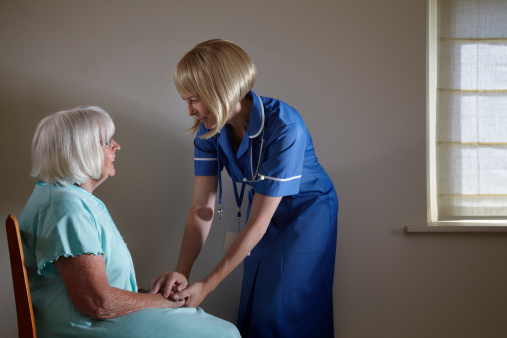How to Minimize Stress for Caregivers of Stroke Victims

A paid helper or a family member who takes care of a sick, disabled or elderly person is called a caregiver. Being a professional caregiver, you can earn a lot but it can be an increasingly challenging job, especially if the patient is not very cooperative.
A stroke victim tends to suffer from frustration and irritation, which makes the job of a caregiver extremely tough and stressful. According to a number of modern researches, caregivers have a great chance of undergoing depression and stress as compared to other people. It is important to keep your calm and adopt a few strategies to reduce stress while taking care of stroke victims.
Instructions
-
1
Be mentally prepared
It is extremely important for a caregiver to be mentally prepared for the task in hand. Most stroke victims go through severe depression and psychological distress, which is likely to test the skills of a caregiver. Mental conditioning should be one of the most important facets of a caregiver’s training, so that he or she is able to adjust to different behaviours of a patient.
Being a professional caregiver or even a family member, you cannot afford to lose patience because that will actually deteriorate the situation. -
2
Physical health of a caregiver
If a caregiver is not at the top of his or her health, he/she would find it extremely hard to take care of the patient. Therefore, it is extremely important for a caregiver not to neglect his/her personal health while looking after the other person. A person is more likely to suffer from mental stress if his or her physical health is not great. -
3
Psychological factors of a caregiver
In order to ensure that the caregiver has lesser stress, you need to give him or her more financial security and chances of a bright future. Career remains one of the most important things for everyone these days and all of us require a secure future to avoid stress. -
4
Knowledge about the disease
A caregiver should have appropriate knowledge about a stroke. In that case, he or she would be in a much better position to understand the behaviour of the patient, resulting in lesser stress. Therefore, knowledge about the disease should also be an important part of the training of a caregiver.




